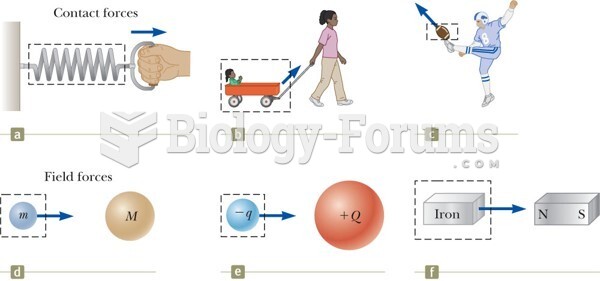This topic contains a solution. Click here to go to the answer
|
|
|
Did you know?
Between 1999 and 2012, American adults with high total cholesterol decreased from 18.3% to 12.9%
Did you know?
Pope Sylvester II tried to introduce Arabic numbers into Europe between the years 999 and 1003, but their use did not catch on for a few more centuries, and Roman numerals continued to be the primary number system.
Did you know?
There are more nerve cells in one human brain than there are stars in the Milky Way.
Did you know?
Addicts to opiates often avoid treatment because they are afraid of withdrawal. Though unpleasant, with proper management, withdrawal is rarely fatal and passes relatively quickly.
Did you know?
Bacteria have flourished on the earth for over three billion years. They were the first life forms on the planet.
 Seven black members of Congress in 1871 are from left to right: Senator Hiram Revels (R-MS) and Repr
Seven black members of Congress in 1871 are from left to right: Senator Hiram Revels (R-MS) and Repr
 Chinese workers on a railway in the far West. “Without them,” Leland Stanford, president of the Cent
Chinese workers on a railway in the far West. “Without them,” Leland Stanford, president of the Cent





